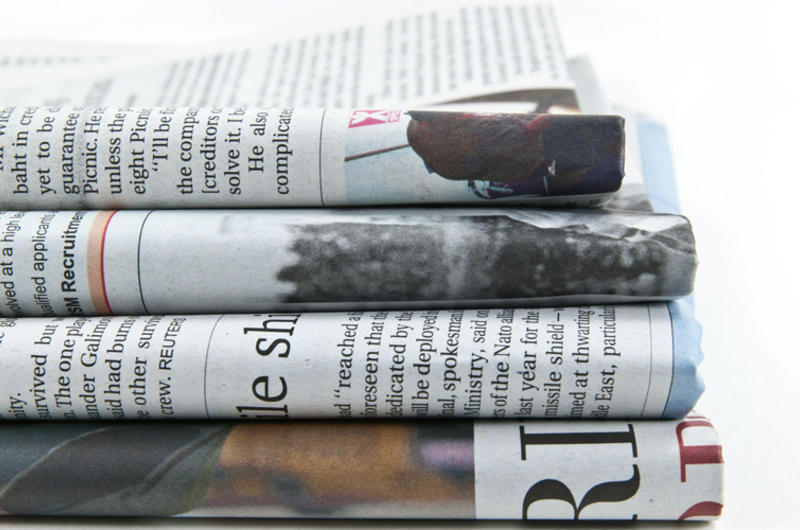By HAL DRAKE AND JIM MESSNER | Stars and Stripes February 26, 1981
TOKYO — Pope John Paul II is to leave Thursday evening for Anchorage, Alaska, after having encountered American military personnel at all but one of the four countries or territories he visited on his Far East tour.
U.S. servicemen saw the pope at Cubi Point NAS, the Philippines; at Agana, Guam; and at Tokyo, Hiroshima and Nagasaki, Japan. More will see him in the Anchorage area — because his stop there will be at Elmendorf AFB. After his plane is refueled at Elmendorf, it will take him back to the Vatican in Rome via a polar route.
There was only one stop on his Far East tour that the pontiff did not see U.S. military men — at Karachi, Pakistan. Members of the American diplomatic corps were on hand, however, when he celebrated Mass in Karachi.
During his Far East tour, the pope escaped an explosion in Karachi that killed the bomb carrier; saw millions in the Philippines, including many of the poor or afflicted — slum dwellers, Vietnamese refugees and lepers; contended with stringent Secret Service protection that residents said kept crowds small on Guam; and encountered affluence and indifference in predominantly non-Christian Japan.
JOHN PAUL put in a full day in Tokyo Tuesday, meeting Prime Minister Zenko Suzuki and Emperor Hirohito, celebrating a Mass before about 40,000 people at Korakuen Stadium and attending a gathering of young people at the Budokan (Martial Arts) Hall. He left Wednesday for Hiroshima and Nagasaki.
Standing in a windy chill at the stadium, John Paul urged an end to war and the threat of nuclear destruction.
The 60-year-old pontiff of the Roman Catholic Church said the words of Christ to his apostles — "My peace I give to you" — must be heeded as man leans toward another worldwide conflict.
"AND SO, I have set foot on the land that has known the special horror of destruction during the last war," John Paul told the crowd.
"The name of the Japanese city of Hiroshima has become a symbol of the threat toward which the whole of humanity is moving, if it does not succeed in overcoming the terrible temptation to dominate others by means of all-out nuclear destruction."
John Paul's call for peace came the day before he left for Hiroshima and Nagasaki, the second city to become a nuclear target in the last days of World War II.
THE POPE made it clear that he never puts the tragedy out of his mind.
He said that in a country where signs of the first nuclear bombing are "living and obvious," the words of Christ must take on a special meaning.
"They must become a challenge," John Paul said. "They must re-echo all the horrors of the final warning. They must become an invocation, a categorical invocation to every possible cooperation by people on behalf of peace in the world."
The pope delivered his homily and celebrated a Mass entirely in Japanese, reading from a Romanlettered text that was held before him. He sat on a red-cushioned chair that was crowned with the papal symbol of the Keys to the Kingdom part of the time he was at the stadium.
THE ROARING welcome the pope got at the stadium and later at the Budokan briefly belied the fact that he, the first ruler of his church to visit Japan, was in a country where less than 1 percent of a population of 117 million have accepted his faith.
John Paul ignored the chill that had earlier driven rain and snow into Tokyo. Nor did he seem bothered by loud blasts from two sound trucks, manned by militant rightists, which rolled along outside the stadium.
The loudspeakers told passersby that it was impossible to be both Japanese and Christian.
A chaplain and a sailor's wife were among the Americans in the stadium throng.
MAUREEN KUCALA, whose husband is stationed at Atsugi NAF, was thrilled when she was chosen to walk forward and have a communion wafer pressed on her tongue by the pontiff.
"I couldn't believe it," Kucala said. "I was just overcome."
About 60 people, among them a sprinkling of foreigners, were picked as personal communicants.
It was Navy Capt. Alfred Pepera's second encounter with the pope. The chaplain with the 3rd Marine Division on Okinawa said he met him in Rome, in 1979, when John Paul was Cardinal Karol Wojtyla of Krakow.
PEPERA WAS then a chaplain with the 8th Marines in Naples. John Paul was in Rome to help fellow priests celebrate the 25th anniversary of their liberation from the notorious Dachau concentration camp.
Pepera and John Paul spoke easily, the chaplain said, because Pepera is of Polish parentage.
"He was interested in all phases of the Marines, showed real concerned interest in their spiritual problems, their moral and spiritual welfare," Pepera recalled. "He showed interest in the dynamism of the Marines. The sharpness of the man as he pierced questions was amazing."
Pepera paused.
"I never thought that a person I had a chance to meet would ever become pope."
AT THE Budokan, the pope told 8,000 young people that while the progress that creates greater comfort is a good thing, they must not become bound up in materialism.
"Yes, the materialism; permissiveness. and self-centeredness that so often accompany modern progress are trying to make inroads in your lives," John Paul said, "and there is always the possibility that they will stifle your moral and spiritual values."
A noisy ovation, paced by chants of "John Paul II, we love you," lasted for six minutes.
Small girls dressed in Polish peasant costumes danced in a ring around the pontiff as he took a microphone and joined popular singer Agnes Chan in a Polish song.




